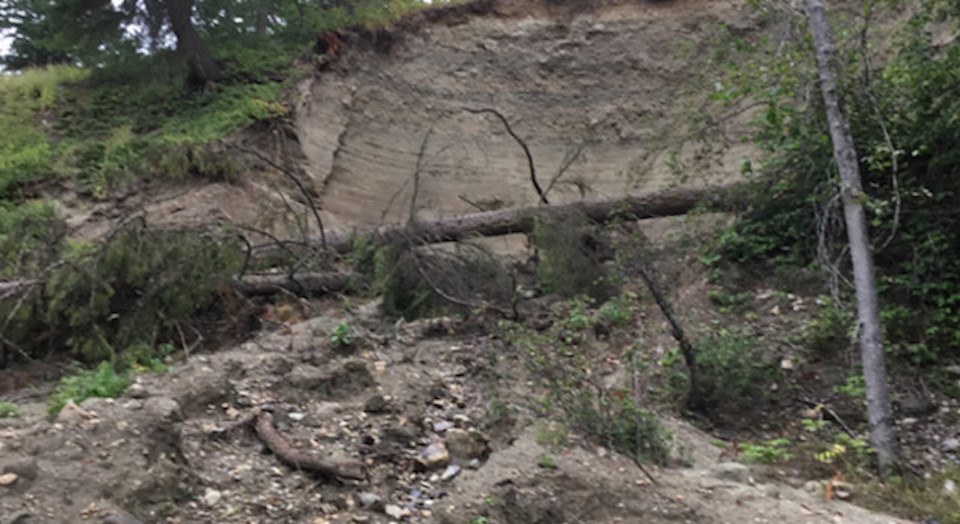An investigation by the Forest Practices Board into timber harvesting and landslides found Vernon Vernon's Tolko Industries followed rules, but could have done more to limit the impacts of its activities.
The investigation followed a complaint to the board by Silver Hills Watershed Watch, which claimed "Tolko's forest harvesting over the past few years between Lumby and Cherryville increased water flows, contributed to four landslides and introduced sediment into streams that supply drinking water."
The board found Tolko did meet requirements of the Forest and Range Practices Act, "but could have done more to assess the potential impacts of its activities."
Board chair Kevin Kriese said: "The investigation found that Tolko's activities met all legal requirements.... Tolko completed terrain stability assessments for its harvest blocks. However, it did not complete a watershed assessment, which we believe would have provided a better picture of the risks created by harvesting and might have led to different practices."
Kriese said watershed assessments are not legally required, "but are a good practice where forestry activities pose a risk to resource values."
The complaint stemmed from a cutblock harvested in 2015 and then salvage-harvesting following a wildfire in 2018.
In May 2020, four landslides occurred below the harvested areas, affecting McPherson Creek, which supplies residents' drinking water.
"Investigators identified a number of factors that contributed to the landslides, but it was not possible to determine the extent to which the harvesting was a factor, or whether the slides would have occurred anyway. Other contributing factors were the natural geology of the area, which is prone to landslides, high precipitation and snowpack levels, and wildfire impacts to natural vegetation and soils," the Forest Practices Board wrote.
The board is B.C.'s independent watchdog for sound forest and range practices.




